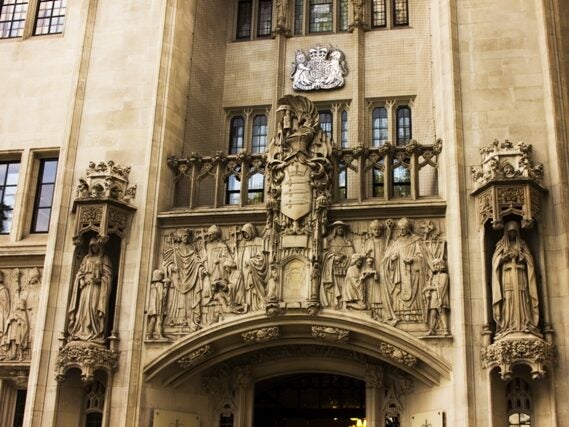
The Supreme Court has ruled that under the Defamation Act 2013 claimants must show that actual, serious harm has been caused to them, or is likely to be caused, by a statement.
It is a landmark legal judgment which clarifies the law on defamation while upholding an earlier Court of Appeal ruling which found that The Independent and Evening Standard had libelled a French aerospace engineer.
The judgment, handed down today in the case of Bruno Lachaux v Independent Print Limited, establishes that the act has raised the threshold of seriousness and so “to some degree” amends the common law rules for defamation.
As such, claimants can no longer rely only on the “inherent tendency” of a statement to cause harm to their reputations in libel claims.
Under section one of the Defamation Act 2013 a statement is deemed “not defamatory unless its publication has caused or is likely to cause serious harm to the reputation of the claimant”.
Judge Lord Sumption said: “This shows, very clearly to my mind, that it not only raises the threshold of seriousness… but requires its application to be determined by reference to the actual facts about its impact and not just to the meaning of the words.”
He went on: “The reference to a situation where the statement ‘has caused’ serious harm is to the consequences of the publication, and not the publication itself.
“It points to some historic harm, which is shown to have actually occurred. This is a proposition of fact which can be established only by reference to the impact which the statement is shown actually to have had.
“It depends on a combination of the inherent tendency of the words and their actual impact on those to whom they were communicated. The same must be true of the reference to harm which is ‘likely’ to be caused.”
Lachaux launched libel proceedings against the Independent, Evening Standard, and The i after the publication of a number of articles in 2014 reporting allegations about his marriage and family life which he denies.
The newspapers defended the claim saying that the statements in the articles were not defamatory because they “did not meet the threshold of seriousness” in section one of the act, however the High Court and subsequently the Court of Appeal found in favour of Lachaux.
Lord Sumption, who heard the case in November last year, a month before his retirement, dismissed the newspapers’ appeals “on the facts” but said he “would state the law differently from the Court of Appeal.”
Daniel Taylor of Taylor Hampton, solicitors for Bruno Lachaux, said: “Going forward, as well as considering the inherently injurious nature of the publication, it will also be important to consider to whom the statement was communicated and the impact of that communication, and that is equally applicable to both individuals and corporations.
“In the specific case of our client Bruno Lachaux, the Supreme Court has now endorsed the decisions of both the High Court and the Court of Appeal that he suffered serious harm to his reputation when the Independent, the i and Evening Standard published articles concerning his alleged treatment of his now former wife.”
Picture: UK Supreme Court
Email pged@pressgazette.co.uk to point out mistakes, provide story tips or send in a letter for publication on our "Letters Page" blog
